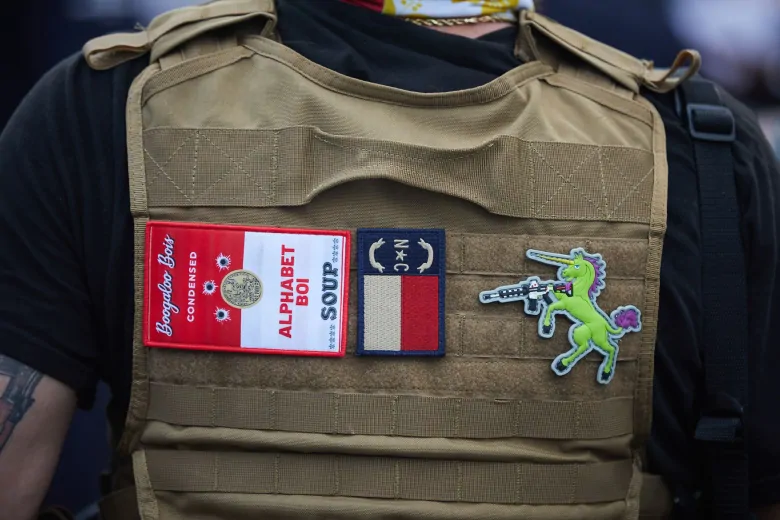A loose collective known as the Boogaloo movement is united in a belief that a second U.S. civil war is coming — but with no unifying political ideology, the movement defies easy definition, says journalist Robert Evans.

Listen9:32
A loose collective known as the Boogaloo movement is united in a belief that a second U.S. civil war is coming — but with no unifying political ideology, the movement defies easy definition, says journalist Robert Evans.
Its adherents are just as likely to support anti-racism protesters speaking out against police brutality, he said, as they are to support people decrying COVID-19 lockdowns to help further their cause.
“They’re all kind of unified by their fascination with this kind of meme of preparing for a civil war in the United States — and as much as that, this idea of a real hatred of the police, of law enforcement, federal and local, and a desire to kind of do battle with the state,” Evans, an investigative journalist for the website Bellingcat, told Day 6 host Brent Bambury.
Who are the Boogaloo Boys?
The Boogaloo movement, sometimes known as the Boogaloo Boys or “Boogaloo Bois,” is thought to take its name from the 1984 movie Breakin’ 2: Electric Boogaloo — a sequel to the film Breakin’ — serving as a coded reference to a “sequel” to the U.S. civil war, he said.
Evans says the term first bubbled up in the mid-2000s within gun enthusiast communities on niche sites like 4chan, but has become more common in the last year and a half, largely because of recruitment efforts on mainstream social media sites like Facebook, Twitter and YouTube.
“I don’t think it was actually a movement when it was on 4chan. I think it was a series of jokes. But I think people carried those jokes out onto social media and it started forming Facebook groups,” he said.
“Facebook … allows huge communities to form, and recommends them to people. So like, folks who are interested in weapons or body armour and stuff start getting pushed into these communities.”
The Tech Transparency Project, an advocacy group that calls on accountability for large tech companies, found over 125 Facebook groups affiliated with the movement in April with tens of thousands of members, many of them only joining in the preceding month.

While some Boogaloo pro

